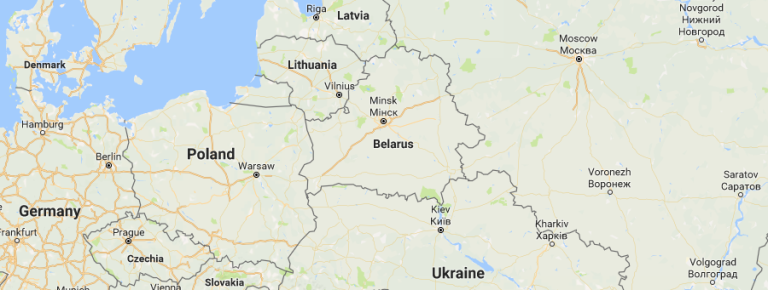
Dranikis are luscious, savory potato pancakes. This creation is sprinkled throughout many cultures, and they are as indulgent as they sound and look. Shredded potato and onion are mixed in a batter and dropped in a hot pan of bubbling oil. Fried until golden and crisp on the outside, the inside is soft and creamy and delicious.
The first time I ate a potato pancake was in college. My roommate, Amy, was completing a project about the defining role food has played in her life. It started with her heritage. Growing up as a spunky, curious, and independent girl in a Jewish family that practiced kosher, she began watching the Cooking Channel, picking up tricks of the pros and learning about unusual ingredients. She also learned how to produce and serve food on a large scale while working in her family’s kosher catering company. In short, at a very young age, Amy was knowledgable and passionate about two very connected worlds: food and science.
Her family and friends were her first test subjects to try her dishes and bakes. Then, in 2009, little ol’ me came along, and her life has never been the same. Ok, mine too.* Cooking and baking was easily our favorite pastime. Muffin Mondays were sacred (a new flavor every week), and Sunday brunches were a given. Naturally, I was the sous chef, and I credit her with much of my own knowledge and passion of cuisine, including this project.
Amy was known to butter-up the teachers with her baked goods, and made classes more fun for everyone when homemade cookies were brought in.** When this project came about, she knew she had to incorporate a dish for the class that was meaningful to her. She chose potato pancakes. I watched Amy present that project, tell her tale of family and food, religion and rebellion. Then, we feasted on her homemade dish.
As I mentioned, potato pancakes are special to many cultures. For Amy, it symbolized her Jewish heritage. During Jewish holidays, including Passover, special dishes like potato pancakes (also known as latkes) are made. It should be noted: I went out of my way to make this dish during this year’s Passover. The Saturday night before Easter, we ate dranikis, gladly, and I remembered the days of cooking in dorm kitchens with Amy. She went onto a graduate program for Food Science in Oregon, and lives there today, indulging in the rich cuisine culture Oregon offers.
The dish was clearly nostalgic, but it was also thought provoking. It made me think about culture beyond the national scale. The complexities and variety one place can hold are astounding if we simply look beyond our own scope. Religious holidays are a wealth of inspiration when it comes to cuisine, and food is often an essential part of how people celebrate events. Sometimes, it’s absent altogether through acts of fasting. Other times, food is overflowing, indulgent and abundant. Either way, when food signifies the time of year, cuisine is suddenly and swiftly a timeline for humanity. It marks time in such a profound and obvious way. The ritual of it amazes me. Sustains me.
I hope to incorporate more traditional foods from the multiple layers of culture, slowly widening the gateway of infinite perspectives other than my own. Whatever the background you come from, cheers to you and yours, to the fellowship, tradition, and memories that are shared around a table of good food.
*Side Effects of Amy: Sassiness and Sarcasm.
**Tip: An easy way to annoy Amy is to use puns.
Quick Quotes
S: “Really enjoyed this one!!”
T: “Mmmmm. The marriage of two very lovable ingredients. Potatoes & Pancakes Forever.”
Ingredient List
- potatoes
- onion
- garlic
- flour
- salt
- egg
Trivial Trifles
- The capital of Belarus is Minsk
- The official languages are Belarusian and Russian (though more people speak Russian)
- Belarus declared independence from the Soviet Union on August 25th, 1991
- Belarus once a significant population of Jewish individuals; since the Holocaust, these numbers have shifted, with Eastern Orthodoxy becoming the most commonly practiced religion in the country
- It is traditional in Slavic nations (and neighbors of Slavic nations), including Belarus, for the hosts of a home to present their guests with a gift of bread and salt. Typically a large, circular loaf has a hole in the top to hold the “salt cellar”
- Speaking of salt, listen to this NPR segment on the 2002 book I’m currently reading: Salt, by Mark Kurlansky. It’s all about… you guessed it, salt: the history and influence of humanity’s most adored seasoning

fun story, you have a very special friend. It looked like hash browns but i bet they were better.
LikeLike
This reminds me of a cookbook that Grandma just brought to the cabin this week. She had no idea where she had gotten it, but it was from St. Anthony’s Catholic Church, location not given. Your aunts Susan and Debbie went on a quest to figure out where this parish is located. Turns out it is in Ely, Mn. The cookbook is just full of tradition, Catholic and Slovician primarily. It has recipes, personal stories and memories. It really goes along with what you are saying about the importance of food in our history and traditions! So true! And we all have more in common than we realize.
LikeLike